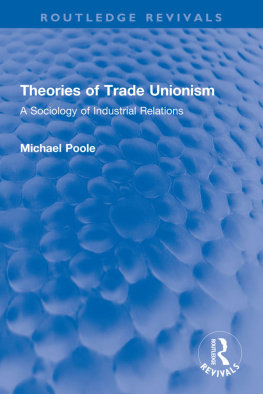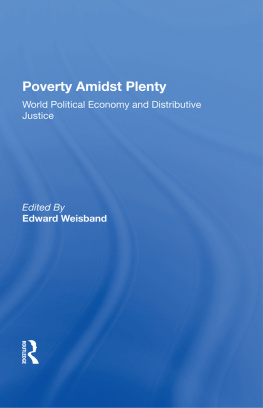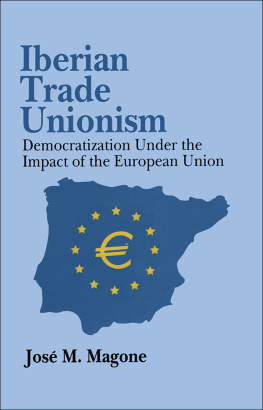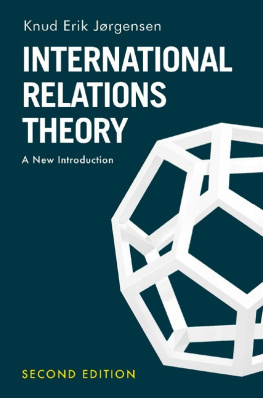Routledge Revivals
Theories of Trade Unionism
First published in 1981, Theories of Trade Unionism traces the development of trade union theory from its nineteenth-century foundations to the more advanced conceptual models present at the time of original publication.
The book surveys the main tributaries of modern approaches the moral and ethical, the revolutionary, the defensive or conservative, and the economic and political and analyses the work of contemporary industrial relations scholars. This includes the main types and varieties of systems theory, the disparate pluralist approaches and the radical school. The book identifies links between the differing premises of the various schools of thought, and combines the main perspectives in a higher analytical and conceptual unity. It concludes with a discussion of a number of avenues for theoretical and conceptual progress.
Theories of Trade Unionism is ideal for those with an interest in the history of trade union theory.
Theories of Trade Unionism
A Sociology of Industrial Relations
By Michael Poole

First published in 1981
by Routledge & Kegan Paul
This edition first published in 2020 by Routledge
2 Park Square, Milton Park, Abingdon, Oxon, OX14 4RN and by Routledge
605 Third Avenue, New York, NY 10017
Routledge is an imprint of the Taylor & Francis Group, an informa business
M. J. F. Poole, 1981
All rights reserved. No part of this book may be reprinted or reproduced or utilised in any form or by any electronic, mechanical, or other means, now known or hereafter invented, including photocopying and recording, or in any information storage or retrieval system, without permission in writing from the publishers.
Publisher's Note
The publisher has gone to great lengths to ensure the quality of this reprint but points out that some imperfections in the original copies may be apparent.
Disclaimer
The publisher has made every effort to trace copyright holders and welcomes correspondence from those they have been unable to contact.
A Library of Congress record exists under LCCN: 80041561
ISBN 13: 978-0-367-67915-6 (hbk)
ISBN 13: 978-1-003-13336-0 (ebk)
Theories of trade unionism:
A sociology of industrial relations
Michael Poole
Senior Lecturer in Industrial Relations University of Wales Institute of Science and Technology

First published in 1981
Revised Edition 1984
by Routledge&Kegan Paul plc
14 Leicester Square, London WC2H 7PH, England, 9 Park Street, Boston, Mass. 02108, USA,
464 St Kilda Road, Melbourne,
Victoria 3004, Australia and
Broadway House, Newtown Road,
Henley-on-Thames, Oxon RG9 IEN, England
Set in IBM Press Roman by Columns, Reading
M.J.F. Poole, 1981
No part of this book may be reproduced in any form without permission from the publisher, except for the quotation of brief passages in criticism
British Library Cataloguing in Publication Data
Poole, Michael
Theories of trade unionism.
I. Trade-unions
I. Title
331.88'09 HD6483 80-41561
ISBN 0-7102-0020-X
Contents
- 1 Early theories of the labour movement
- 2 System models of labour relations
- 3 The theoretical foundations of the 'Oxford school'
- 4 Pluralism and trade unionism
- 5 Social inequality and trade union behaviour
- 6 Modern structuralist approaches
- 7 Organizations, institutions and their environments
- 8 Culture, values and perception
- The emerging synthesis
- 1 Early theories of the labour movement
- 2 System models of labour relations
- 3 The theoretical foundations of the 'Oxford school'
- 4 Pluralism and trade unionism
- 5 Social inequality and trade union behaviour
- 6 Modern structuralist approaches
- 7 Organizations, institutions and their environments
- 8 Culture, values and perception
- The emerging synthesis
Guide
Tables
- 2.1 Theoretical refinement to the 'system model': social change
- 5.1 Values, class and control
- 5.2 Variations in types of shop floor control
- 7.1 Union goals and Etzioni's categories
- 8.1 Categories of social action and perceptions of trade unionism
Figures
- 2.1 A framework for analysing industrial systems (a structural-functional approach)
- 2.2 Structure and process in union-management relations
- 2.3 Relationship of the industrial relations system to the social system
- 3.1 Matrix of explanatory variables in Flanders's theory
- 4.1 Dimensions of collective bargaining structure, origins and union behaviour
- 5.1 The trend towards instrumental collectivism
- 5.2 Social stratification and trade unionism
- 7.1 General models of trade unionism
- 7.2 Environmental and organizational factors in trade unionism
- 7.3 The central cycle of union activity
The publication of this paperback edition of Theories of Trade Unionism is a timely reminder of the appreciable world-wide interest in establishing a central core of theory in industrial relations. Indeed, in the 1980s, there have been welcome signs of a revival of concern for explanation that inevitably focusses the analyst's attention on themes of this type. This is in contrast with the previous decade, when a preoccupation with issues of policy and the dominance of a few highly distinctive schools of thought, precluded the currently fruitful scholarly interchange of ideas and concepts.
My principal objective in this volume is to review comprehensively the development of industrial relations theory, with special emphasis on trade unionism. It parallels the substantial advances in analytical scholarship in the USA, marked most obviously by the publication of Kochan's Collective Bargaining and Industrial Relations. This is an important milestone in the attempt to establish integrated conceptual frameworks for the study of industrial relations and it provided the springboard for a review symposium in Industrial Relations, the journal of the Institute of Industrial Relations at the University of California at Berkeley. Recent articles in the leading Australian and Canadian journals of industrial relations are also symptomatic of the same trend.
It is not my aim, however, to produce merely a bibliographic review of a wide-ranging literature, but rather to lay the foundations of a higher order synthesis of explanatory concepts. This is viewed as a central part of an evolving strategy for the theoretical advance of this area of inquiry. The comprehensive outline of causative variables is thus an essential prelude for the long-run goal of attaching weights to the principal forces affecting trade union action and behaviour at all levels. And it is a preferable modus operandi to the futile task of establishing a single essential theory of the labour movement. Indeed, the ultimate objective must be to develop focussed testable theories in relation to several dependent phenomena (e.g., trade union growth or structure) and, without sacrifice to the vision and perceptiveness of the pioneers of labour theory, to integrate these into advanced analytical models grounded in rigorous empirical scholarship.









